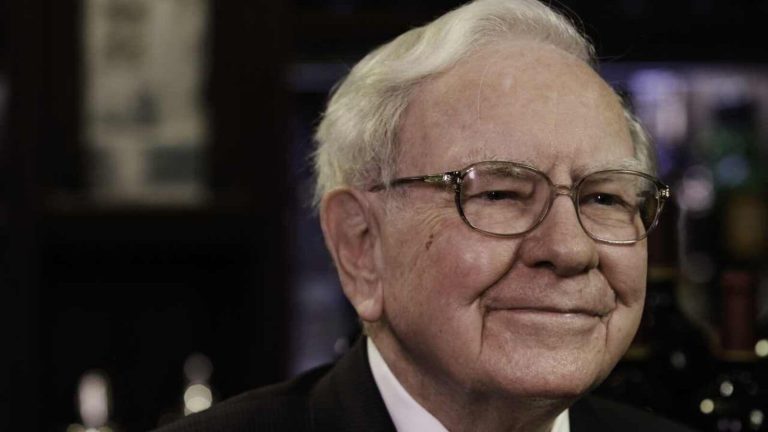Berkshire Hathaway held its 2025 annual shareholders’ meeting on Saturday, and the bombshell at the end of CEO Warren Buffett’s presentation was that he planned for vice chairman Greg Abel to take over as CEO at the end of the year. Buffett’s announcement was not just a surprise to the tens of thousands of investors in attendance, but to most of the company’s board and to Abel himself.
“He would be the chief executive, period,” said Buffett, who said he didn’t plan to sell a “single share” of Berkshire stock.
Buffett’s announcement came at the end of nearly five hours of questions to him, Abel, and vice chairman Ajit Jain at the CHI Health Center in Omaha, Neb., which holds 40,000 people. The topics they covered ranged from what Buffett planned to do with the company’s massive cash pile to how things will change when the company’s leadership changes.
Berkshire’s Class A stock this year is up about 19%, compared to a 3.3% drop for the S&P 500.
Here are four other takeaways from the meeting.
Questions On Abel’s Investment Philosophy Proved Prescient
Hours before Buffett announced that he planned to step back, an investor asked Abel how his investing philosophy compared to that of Buffett—and how Berkshire might change when he’s at the helm.
Abel said his first priority would be maintaining Berkshire’s reputation and a “fortress of a balance sheet,” which not only gives Berkshire the dry powder to make big acquisitions, but protects it during downturns. He also said he’d continue to let the companies Berkshire owns operate autonomously.
“It really is the investment philosophy and how Warren and the team have allocated capital for the past 60 years and will not change,” Abel said.
Later, when another shareholder asked how Abel’s management style differed, Buffett jumped in with his own quip: “Better.”
Buffett Said Trade Shouldn’t ‘Be Used As A Weapon’
CNBC’s Becky Quick, who interviewed Buffett on stage, said she received more questions from shareholders about tariffs than about any other topic—and Buffett made clear that he doesn’t like the direction the U.S. is going on trade.
“There’s no question that trade can be an act of war and I think it’s led to bad things, just the attitudes that’s brought out in the United States,” Buffett said. “We should be looking to trade with the rest of the world, and we should do what we do best, and they should do what they do best.”
Tariffs have directly affected most of the companies that Berkshire owns in one way or another. Berkshire Hathaway Automotive CEO Jeff Rachor said that earlier this year he saw a surge in customers buying cars to get ahead of President Donald Trump’s tariffs—a trend that he expects to balance out later in the year.
April’s Volatility Wasn’t A Buying Opportunity
April was a historically volatile month for stocks, with the S&P 500 losing more than 12% early in the month before recovering almost all of its losses.
But despite the drop—and the enormous $348 billion cash pile Berkshire has to deploy—Buffett downplayed the idea that the volatility represented a unique opportunity.
“This has not been a dramatic bear market or anything of the sort,” he said. Buffett and Abel acknowledged that the company considered an investment of $10 billion in a company that Buffett declined to name, but Buffett ultimately decided not to pull the trigger.
Buffett’s Still High on America, But Wary Of Debt
Buffett took the chance to weigh in on America’s fiscal situation several times during the Q&A period, noting that in other countries, runaway debt has often resulted in debased currencies.
“We are doing something that is unsustainable,” said Buffett, in response to a question on what he thought about Tesla CEO Elon Musk’s “Department of Government Efficiency.”
Though Buffett didn’t comment on DOGE directly, he said he didn’t envy the job of trying to reduce the U.S. goverment’s fiscal deficit and said that Congress isn’t doing its job to bring revenues and spending into balance.
“We’ve still had very substantial inflation in the United States, but it’s never been runaway yet,” said Buffett.
Despite the fiscal problems, in a different question Buffett pushed back on the idea of the death of “American exceptionalism,” noting that the U.S. has successfully faced much more substantial crises in its history. If he was being born today, Buffett said he would “just keep negotiating in the womb” until he could secure the U.S. as his birthplace.


